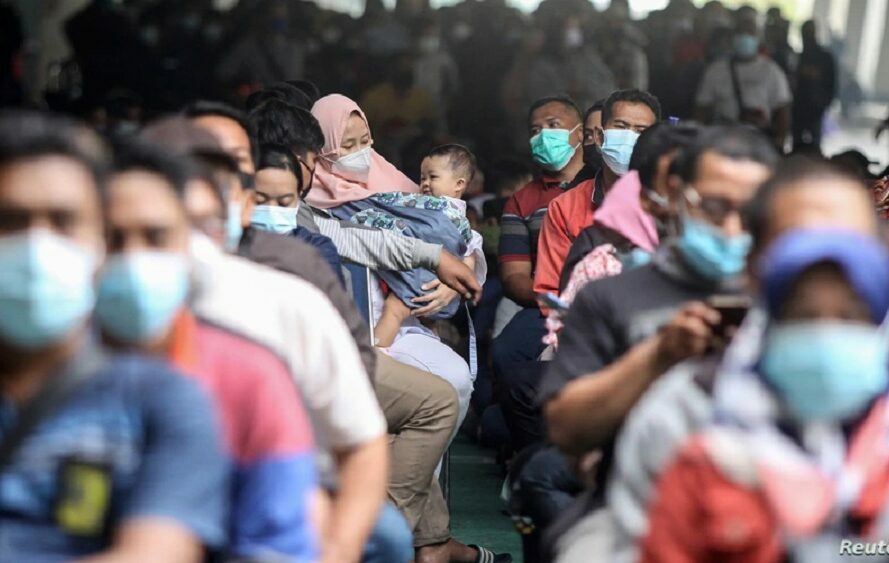Despite successfully staving off significant COVID-19 outbreaks in 2020, many countries in Southeast Asia are now reckoning with a new surge in infections and deaths, driven by highly contagious variants of the coronavirus.
Myanmar social media has been flooded with desperate pleas for oxygen, Thai healthcare workers have been forced to store dead bodies in refrigerated containers as morgues are overwhelmed, and Vietnam has deployed troops to enforce a severe lockdown in Ho Chi Minh amid panic buying.
The situation has been exacerbated by sluggish vaccine campaigns marked by a lack of supply and hesitancy influenced by distrust of authorities and of China – the main vaccine supplier to the region.
Nowhere is this more pronounced than Myanmar, where a military coup and a subsequent bloody crackdown have decimated the healthcare system. Prior to the February 1 coup, Myanmar had only reported about 3,000 deaths from COVID-19. Today, the official death toll is more than 14,000, with most health experts estimating the true count is far higher. Doctors and nurses have been at the forefront of the resistance to the coup, with approximately 60 to 80% of the public healthcare force on strike in defiance of the military – a move that has crippled the healthcare system. The military has meanwhile cracked down on parallel healthcare structures set up by striking workers.
According to the military’s official numbers, about 8 percent of Myanmar’s estimated 54 million people have received at least one dose. The country has mostly turned to vaccines developed by China, Russia, and India for its inoculation programme.
Jason Mills, deputy head of mission for Doctors Without Borders in Myanmar, said the country has “probably the most politicized healthcare environment in the world right now.” He said distrust of the military has been a “real issue” in terms of getting healthcare workers vaccinated.
“Trust is the foundation of all successful vaccination campaigns,” Mills said, adding that the military’s health ministry must “give parallel health actors space to vaccinate populations who trust them independent of affiliation with the de facto authorities.”
So far, the military has shown little willingness to do so. In July, security forces fabricated a fake COVID-19 emergency and reported it to a clinic run by striking doctors in Yangon, arresting five of them. In August, the head of a charity organisation was detained at a vaccination centre after being lured there for a shot.
The National Unity Government (NUG), formed by politicians who were elected in the 2020 election, which the military has refused to recognise, recently set up a COVID-19 Task Force (CTF) with plans to vaccinate people, starting in territory controlled by ethnic rebel groups. According to one ethnic health group, initial preparations are being made to vaccinate 80,000 people. The head of the CTF recently met with the United States ambassador to the UN, who pledged $50 million to support general humanitarian efforts, including the COVID-19 response.
The fact that many of the vaccines are supplied by China and Russia, which have shielded Myanmar from stronger criticism at the UN Security Council, has only further exacerbated the trust deficit.
While the World Health Organization has approved Sinovac and Sinopharm “for emergency use,” the Chinese-made vaccines have lower efficacy rates than other vaccines like Pfizer and Moderna, which were developed by companies in the US and Germany.
